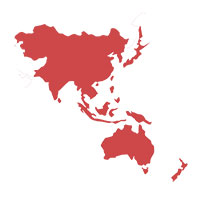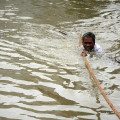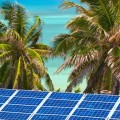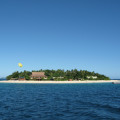“This day is the sunrise of new hope. Not just for clean energy, but for villages and homes still in darkness,” said Prime Minister Narendra Modi of India as he launched the International Solar Alliance.
Also launched by French President Francois Hollande and UN Secretary General Ban Ki-Moon, the group aims to bring solar energy to countries between the tropics.
There is a potential pool of 121 member solar rich countries within the tropics, and Modi is hoping they will join the alliance.
India will host the initative at its national institute of solar energy, providing land and US$30 million to run operations at the centre for the next five years.
President Hollande also spoke of the transition from fossil fuels to solar, arguing “the countries that have built their wealth on coal, others later on oil” must change their energy sources.
“These are energies of yesterday. Wealth tomorrow will come from new energy that will be developed everywhere in the world, and mainly solar,” he added.
Modi reiterated India’s solar energy target of 100 GV of solar power by 2022. He also announced that they were on track to install 12 GV of capacity by next year.
“Today, when the energy source of our industrial age helped put the world in peril, the world must turn their attention to the sun to power the future,” said Modi.
India’s move towards solar energy comes as their consumption of coal continues to grow. As recently as last week, Modi reaffirmed India’s right to burn coal in an opinion piece published in the Financial Times.
“Justice demands that, with what little carbon we can still safely burn, developing countries are allowed to grow,” Modi wrote in the article.
Hollande hopes this initiative will allow France to help developing countries continue to grow while bringing electricity to new places in an environmentally sustainable way.
“France wishes to take the initiative to mobilise financing and use our technology to ensure…they have access to electricity.”
“Modi likes to use a phrase, and I have taken it up: climate justice. That is what remains for us to do, not just for the Asian continent or a big country like India, but for Africa,” Hollande added.
While Ban Ki Moon praised the initiative, he also took the opportunity to push the heads of state present to come to a deal on climate change.
“It is time for all countries to follow the path of consensus and meet at a middle ground to secure a common goal. The wellbeing of future generations and of our planet rests on our decisions here in Paris,” he noted.
“In our world we cannot have a perfect agreement…at this time I know there are still some unresolved issues, but all these unresolved issues have been discussed many, many years. You simply have not taken decisions … you know what are the best, please show some flexibility and sense of compromise for the common good,” he implored world leaders.
The International Solar Alliance may add momentum towards an agreement as it could provide India and other developing nations with an avenue to wean itself of from coal. The tension between economic development and energy use is a key sticking point at the climate change negotiations. Mr Ban concluded by reflecting on this challenge.
“As the Prime Minister Modi has said we need development without destruction. Solar energy offers major potential for reducing poverty and limiting green house emissions.”













comment